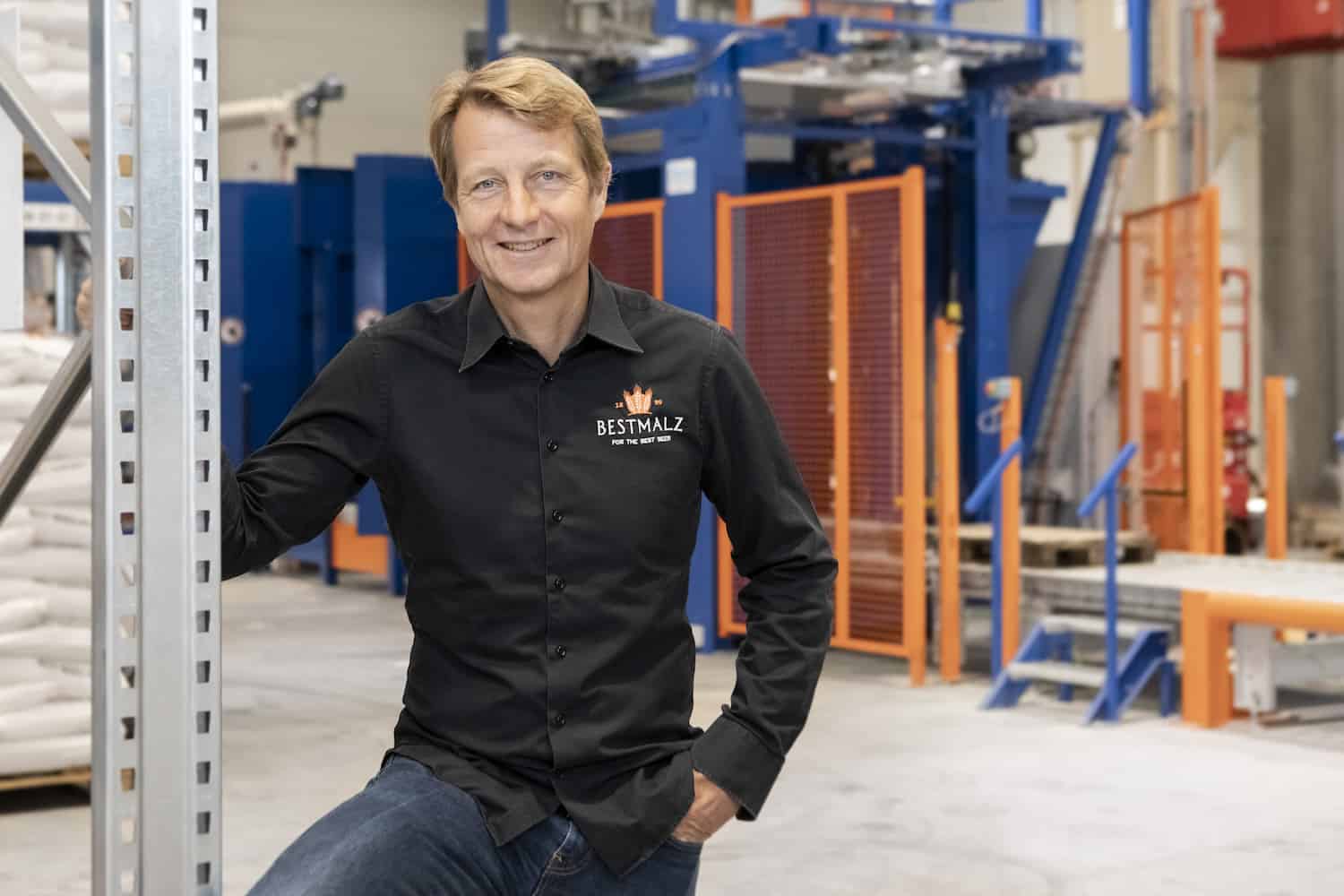What challenges the Heidelberg malting group has faced and why the BESTMALZ CEO is still optimistic about 2021
Even in non-Corona times, CEO Dr. Axel Göhler often travels back and forth between the three locations of the family-run company Palatia Malz GmbH. Since the pandemic was announced, things have been running differently: In the two production plants of the leading German malting group, visitors are permitted only if deemed absolutely necessary. Truck drivers are asked to wait in their vehicles during loading and while completing paperwork. Administrative staff has been working from home, distancing and wearing masks has been strictly enforced. In this interview, the BESTMALZ CEO looks back on the past months, explaining why the pandemic will not cause a change of course in the company and illustrates why he is not afraid of the future.
What restrictions were there at Palatia Malz due to Covid-19?
The pandemic hit us in three waves. After the first reports of a pandemic in Germany our priority was to protect the health of our employees. Our workflow had to be adjusted to minimize personal contact when changing shifts. In March, everyone who could, began working from home. In the second phase, there was a drop in sales in April and May 2020, which required capacity adjustments. Future repairs were rescheduled to an earlier date and funds reallocated to accommodate them in these “calmer” times. In the third phase, we quickly had to resolve the challenge that, due to dry weather, suppliers were pushing for barley and wheat from older contracts be completely retrieved before the harvest of 2020, which was expected in June/July. This was not easy, because due to the corona lockdown, breweries had not expended the usual quantities of malt. As a result, free storage capacity was scarce. After a comprehensive inventory of all silos, available storage space was exhausted down to the last millimeter. External warehouses were rented and additional short-term deals were made with large German brewing groups. In the end everything worked out somehow, but it was a close call.
What decline in orders and sales did you experience?
We aren’t publishing specific figures on pandemic-related declines in turnover or sales. However, the entire malting industry was more or less affected. The months of April and May showed a substantial decline. During the summer, we returned to the previous year’s level. In autumn and the winter months, the malt business is traditionally a bit quieter. That means that we are currently operating normally. Looking at 2020 in its entirety, however, the month-long interruption in the draft-beer business will bring significant losses for brewers and maltsters alike.
What measures have you taken to counteract this?
On the one hand, we surveyed the economic support measures offered by our government and, in some cases, made use of them. But above all, we involved our employees very closely from the start in our strategic deliberations on overcoming this crisis, which has paid off tremendously. We don’t have a workers’ council in the larger part of the company. In order to be able to introduce government compensated, shortened working hours in some areas, individual contractual agreements with the employees had to be made. When we approached our colleagues with this intention in March, not a single employee protested. All of our approximately 100 employees stood together in these testing times. Such loyalty is remarkable and makes me very happy!
What can the government do to help the (medium-sized) economy?
Politicians must recognize the economic burden and personnel problems companies are experiencing and react with precision. Covid-19 presents a highly complex problem for the government, because there are many unknown variables and all areas of social life are affected. In such a confusing situation, no industry can expect that its own interests be at the center of political considerations. The middle class is the – often disregarded – economic backbone of the German economy. Just because it doesn’t have a strong lobby, shouldn’t lead to the German SME sector being neglected. Locally responsible political decision-makers in the districts of our two plants sometimes surprise me by their lack of understanding for the current stressful situation experienced by an otherwise healthy German medium-sized company.
For example, German maltsters depend on a well performing German agricultural sector. Here, politicians should not be following the empty phrases of opinion leaders, but should rather critically examine whether their planned measures are, in fact, effective and also not excessively restrictive for the industries affected.
What are you planning in order to get “back on track”?
Covid-19 will not cause a change of course at our company. That would be inappropriate. Our domestic and international business partners have always been the main focus of our efforts. The pandemic has hit some of our international distributors rather hard, and the latest government restrictions are also presenting them with tangible difficulties. Our loyalty is now more important than ever. The high quality of our products remains our main priority before, during and after C-19 and comprises the core element of our self-image. Brewers expect only the BEST malt from us, and they should get it. Again, the pandemic must not be used as an excuse or regarded as a limitation. And last but not least, our company’s excellent workforce is the reason why we are able to assert ourselves against a large number of competitors every day around the world. With good partners, consistently excellent quality and exceptional employees, I am not worried about the future of our company.

